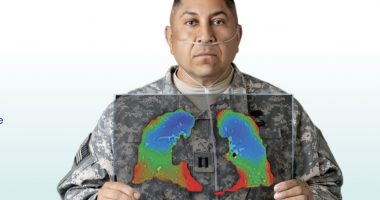- Cynata Therapeutics (CYP) has received a research and development tax incentive of nearly $2 million for the 2018-2019 financial year
- This refund increases the company’s cash position which stood at $9.2 million at the end of the September quarter
- This money enables further resources to be invested towards Cynata’s phase 2 clinical trial programs for osteoarthritis and critical reduced blood flow products
- Cynata’s share price is up a steady 4.82 per cent with shares trading for $1.20 apiece
Cynata Therapeutics (CYP) has received a research and development tax incentive refund of $1,891,795 for the 2018-2019 financial year.
This tax incentive refund increases the company’s cash position which stood at $9.2 million at the end of the September quarter.
It also enables further resources to be invested towards Cynata’s phase 2 clinical trial programs for the critical limb ischemia (CLI) (reduced blood flow) and osteoarthritis products.
This will be alongside the anticipated phase 2 trial for CYP-001 in graft-versus-host disease which will be conducted by Fujifilm.
CLI is an advanced stage of peripheral artery disease which is the narrowing of the arteries in the limbs, typically in the lower legs.
It results from severely impaired blood flow which can cause pain, tissue damage, and gangrene.
Around 25 per cent of CLI patients who are unable to undergo surgery to remove the affected area, often an amputation, will die within a year of diagnosis.
Cynata’ Cymerus mesenchymal stem cells (MSCs) have been successfully tested in a mouse model of CLI.
Muscles on the ischaemic leg were injected with Cymerus MSCs or a control.
Over a four-week follow-up period, the return of blood flow was measured and in animals treated with Cymerus MSCs blood flow in the injured limb was significantly higher at every point compared to the control.
MSCs are an adult stem cell found in a wide range of human tissues including bone marrow, fat tissue and placenta.
They are multi-potent which means they can produce more than one type of cell, for example they can differentiate into cartilage cells, bone cells and fat cells.
MSCs have been shown to ease regeneration and effects on the immune system without relying on engraftment (when the transplanted cells start to grow and make healthy cells).
The research and development tax incentive is an important Australian Government program that encourages companies to engage in research and development benefiting Australia by providing a tax offset for eligible activities.
Cynata’s share price is up a steady 4.82 per cent with shares trading for $1.20 apiece at 3:29 pm AEDT.







